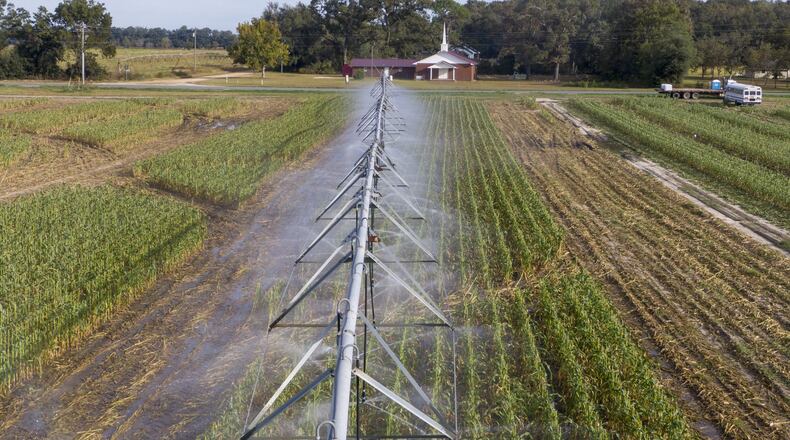Florida is urging the U.S. Supreme Court to reject a judge’s recommendation that the state’s 7-year-old water rights case against Georgia be dismissed.
Heeding the advice of the court-appointed "special master," New Mexico-based federal Judge Paul Kelly, would "spell doom" for the Apalachicola Bay, Florida's attorneys argued in a new legal brief.
“If this Court accepts the Special Master’s recommendation, Georgia’s consumption will only increase, and the situation in the Apalachicola will inevitably worsen,” Florida’s lawyers argued in the 65-page brief filed Monday.
The justices should instead mandate the “equitable apportionment” of water in the Apalachicola-Chattahoochee-Flint river basin between the two states, the filing said. Doing so, it continued, will help revive Apalachicola Bay, the ecologically delicate estuary that was once home to 10% of the country’s oysters.
The U.S. “was built, and has endured, on the common-sense principle that all states have an equal right to the reasonable use of shared resources,” Florida’s attorneys wrote. “That is all that Florida asks this Court to vindicate here.”
The brief was Florida's first official response since Kelly concluded in December that "Georgia's water use is reasonable." Kelly told justices that Florida's proposal for strict consumption limits on its northern neighbor should be rejected because the cost "would substantially outweigh" the benefits. Georgia leaders celebrated the recommendation.
Read more:Your cheat sheet to the Georgia-Florida water wars
Florida alleged that Georgia’s water usage in the Apalachicola-Chattahoochee-Flint has skyrocketed over the years, particularly during a 2012 drought.
Apalachicola’s oyster population relies on a delicate mixture of saltwater from the Gulf of Mexico and fresh water from upstream to thrive. The Bay’s increased salinity during the drought led to an increase of predators like conchs that caused the oyster population there to collapse, according to the brief.
The Apalachicola-Chattahoochee-Flint basin originates in northeast Georgia. The Chattahoochee River serves as the main source of drinking water for roughly 70% of metro Atlanta. However, Florida's lawyers homed in on farmers along the Flint River in southwest Georgia, saying they are siphoning off too much water.
Attorneys for Georgia argue the state has been a responsible water steward, and Kelly largely agreed with that assessment in his recommendation to the court. He said the drought and mismanagement on Florida’s part, including lifting previous restrictions on oyster harvesting following the Deepwater Horizon oil spill in 2010, were bigger contributors to the industry’s collapse than Georgia’s consumption.
The final decision ultimately rests with the Supreme Court, which Georgia legal sources expect will hear the case in its next term that begins in October.
Justices first heard oral arguments from Georgia and Florida in January 2018 and appointed Kelly to revisit the weedy case after an initial special master urged the court to dismiss it.
Monday's document is the first of three sets of briefs and counter-briefs the court directed both parties to file in January.
About the Author
Keep Reading
The Latest
Featured



